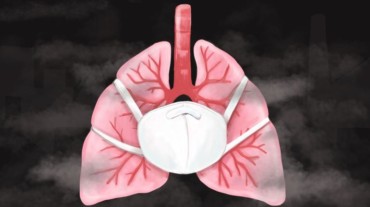
Pollution levels are rising by the day, and it truly is a glaring concern.
Before we get into the details, let’s first understand what pollution really is. It is the contamination of the earth’s environment with materials that interfere with human health and their quality of life. Air pollution is responsible for many health problems, especially in urban areas. Several studies in developed countries have reported the effect of particulate matter on human health, as the most important impact of air pollution.
Unfortunately, children are more susceptible to air pollution for various reasons. A large portion of a child’s lung grows after birth. Around 80 percent of tiny air sacs called the alveoli develop after birth. These alveoli are involved in the transfer of oxygen to the blood. The body’s defense mechanism is not fully mature in children. Besides, children stay outdoors for a longer time as compared to adults. Consequently, they inhale more polluted air.
The PM10 measure, which includes particles with a diameter of 10 microns or less , is generally used to measure air quality. These particles are considered to be responsible for adverse health effects, because of their ability to reach the lower regions of the respiratory tract.
These are the ways in which air pollution can harm kids:
As particles can penetrate into the alveoli of lungs, they are capable of causing serious damage to developing lungs of children. With pollution, there is increased prevalence of both upper and lower respiratory tract symptoms. These include dry cough, wheeze or breathlessness. The recurrent lung infections can reduce lung function. Hence, in the long run there is an increased prevalence of obstructive and restrictive type lung function defects. According to the World Health Organization, there is a high prevalence of asthma in childhood and rising prevalence of cystic fibrosis.

A Stanford-led study read that children exposed to air pollution are at higher risk of heart disease and other ailments in adulthood. Also, some non-respiratory effects have been observed such as chronic headache, eye and skin irritation.
Exposure to air pollution has also been shown to cause alteration in the immune system in children. There is some research to confirm that bad air can alter gene regulation that may impact long term health.
Some studies in the last two decades have stressed the adverse effects of air pollutants on selected cognitive and psychomotor functions like impaired working memory, attention and fine motor functions.
Air pollution allows ultraviolet rays to penetrate the earth’s atmosphere and causes a rise in temperature and climatic changes, which predisposes them to skin diseases.
Select Topics of your interest and let us customize your feed.
PERSONALISE NOWStudies have also confirmed increased risk of vitamin D deficiency and increased risk of birth defects, if mothers are exposed to harmful effects of air pollution. The developing organ systems of the fetus can be more vulnerable to environmental toxins during critical periods, owing to higher rate of cell proliferation or changing metabolic capabilities. Prenatal exposure to environmental pollution can thus result in some adverse pregnancy outcome.

The effects of pollution in early life thus have an impact on physical and mental development of a child, which can cause health implications across the lifespan.
As the pollution affects the child’s health in early years, there is a significant impact on early learning, focus and memory. This results in increased incidence of school absenteeism, poor scholastic performance, eventually affecting social and economic growth.